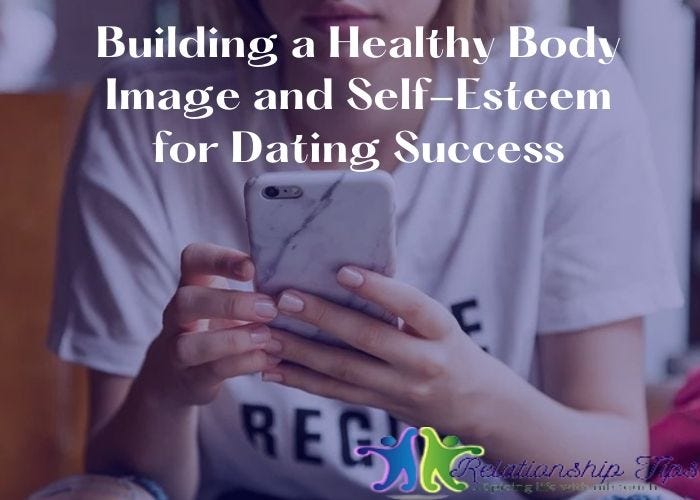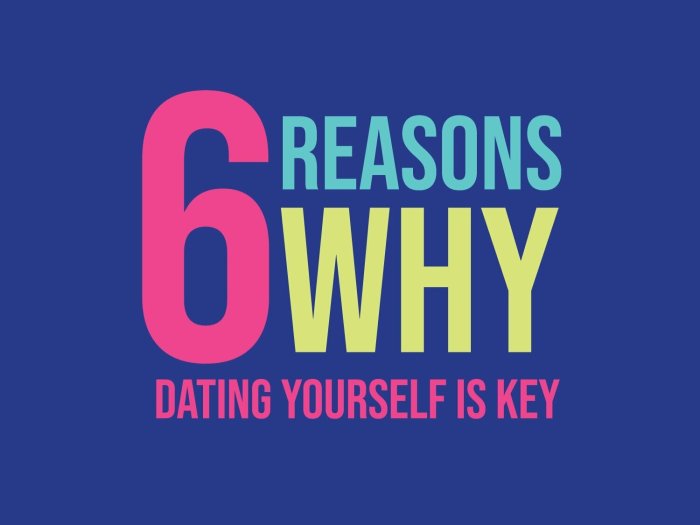Navigating the US dating scene can be a rollercoaster, filled with both exhilarating highs and frustrating lows. From the overwhelming choices of online dating apps to the complexities of navigating in-person interactions, singles often face unique challenges. This guide delves into the intricacies of US dating, exploring effective strategies for creating a compelling online profile, mastering first-date conversations, and ultimately, finding lasting love. But successful dating isn't just about strategy; it's also about self-awareness and personal growth. We'll explore the crucial role of self-improvement in enhancing your dating prospects, helping you cultivate confidence, build stronger communication skills, and manage expectations to foster healthier, more fulfilling relationships.
We'll examine how self-reflection, addressing insecurities, and practicing mindfulness can transform your dating experience. By understanding and improving aspects of yourself, you'll attract more compatible partners and build stronger connections. This guide provides a comprehensive roadmap, blending practical dating advice with proven self-improvement techniques to help you achieve both personal growth and romantic success.
Navigating the US Dating Scene
The US dating landscape is diverse and dynamic, varying significantly depending on geographic location, age, and personal preferences. Singles in major cities often face unique challenges, while those in smaller towns navigate a different set of dynamics. Understanding these nuances is crucial for successful dating.Common Challenges Faced by Singles in Major US Cities
Major US cities, while offering a vast pool of potential partners, present unique hurdles for singles. Competition is fierce, with a high density of individuals actively seeking relationships. Busy lifestyles and demanding careers often leave little time for dating. Furthermore, the anonymity of large urban areas can make it challenging to meet people organically, leading many to rely heavily on online dating platforms. The sheer volume of choices can also be overwhelming, leading to decision fatigue and potentially hindering genuine connections. Finally, the high cost of living in many major cities can create financial constraints that impact dating activities.Online Dating Experiences Versus Traditional Dating Methods in the US
Online dating has revolutionized the US dating scene, offering unprecedented access to a wider pool of potential partners. However, it also introduces challenges such as catfishing, superficial interactions, and the pressure to curate a perfect online persona. Traditional dating methods, such as meeting through friends, social events, or hobbies, offer a more organic approach but often require more effort and patience. While online dating provides convenience and efficiency, traditional methods foster deeper, more meaningful connections built on shared experiences. The optimal approach often involves a combination of both, leveraging the convenience of online platforms to initiate contact while valuing the authenticity of in-person interactions.Strategies for Creating a Compelling Online Dating Profile
A compelling online dating profile is essential for attracting potential matches. High-quality photographs are crucial, showcasing your personality and interests. Avoid overly posed or filtered images; opt for natural shots that reflect your authentic self. Your profile description should be concise, engaging, and highlight your key attributes and values. Avoid clichés and negativity; instead, focus on what makes you unique and what you're looking for in a partner. Proofread carefully for any grammatical errors or typos. Finally, choose a username that is both memorable and reflects your personality.Sample Dating Profile
Headline: Adventurous Architect Seeking Genuine ConnectionPhotos: A clear headshot, a photo showcasing a hobby (e.g., hiking, cooking), a photo with friends (showing social skills).Description: I'm a passionate architect with a love for exploring new places and trying new cuisines. I value honesty, kindness, and a good sense of humor. I'm looking for someone genuine and adventurous to share life's experiences with. If you enjoy exploring hidden gems in the city, trying out new restaurants, or simply enjoying a quiet night in, let's connect!Effective First-Date Conversation Starters
Choosing effective conversation starters can set the tone for a successful first date. It's important to ask open-ended questions that encourage engaging responses and reveal your date's personality. Avoid controversial or overly personal topics on a first date.- “What's something you're passionate about right now?”
- “What's a place you've always dreamed of visiting?”
- “What's your favorite way to unwind after a long day?”
- “What's a skill you've always wanted to learn?”
- “What's a book, movie, or TV show that has recently impacted you?”
Self-Improvement for Dating Success

Source: medium.com
The Benefits of Self-Reflection in Improving Dating Prospects
Self-reflection is the cornerstone of personal growth. By honestly assessing your past relationships, dating patterns, and personal behaviors, you can identify recurring issues and develop strategies for improvement. This introspective process allows you to understand your emotional responses, communication styles, and relationship expectations, leading to more conscious and informed decisions in future interactions. For example, someone who consistently chooses unavailable partners might, through self-reflection, discover a pattern of seeking validation from unavailable figures, a pattern rooted in childhood experiences. Addressing this underlying issue is key to breaking the cycle and finding healthier relationships. This process empowers you to take control of your dating life, rather than being passively influenced by past experiences.Identifying and Addressing Personal Insecurities that Hinder Dating Success
Unresolved insecurities can significantly sabotage dating success. Identifying these insecurities requires honest self-assessment. Common insecurities include fear of rejection, low self-esteem, and a fear of vulnerability. Addressing these requires a multi-pronged approach. First, acknowledge and accept these insecurities without judgment. Second, explore their origins; often, they stem from past experiences or negative self-talk. Third, actively challenge these negative thoughts and beliefs with positive affirmations and evidence that contradicts these insecurities. Finally, seek professional help if needed; a therapist can provide guidance and support in overcoming deeply rooted insecurities. For instance, someone with a fear of rejection might start by setting smaller, achievable dating goals, such as initiating a conversation or going on a single date, to gradually build confidence.Improving Communication Skills for Healthier Relationships
Effective communication is crucial for healthy relationshipsManaging Expectations and Avoiding Disappointment in Dating
Unrealistic expectations are a common source of disappointment in dating. It's essential to cultivate a realistic understanding of relationships and dating. Avoid idealizing potential partners or expecting them to fulfill all your needs. Remember that relationships require effort, compromise, and understanding from both sides. Setting healthy boundaries and accepting that not every date will lead to a long-term relationship is crucial for managing expectations and avoiding unnecessary disappointment. Focusing on building genuine connections rather than solely pursuing a specific outcome can lead to a more positive and fulfilling dating experience.Mindfulness and Self-Care Practices for a More Fulfilling Dating Experience
Mindfulness and self-care practices are essential for navigating the dating world with emotional resilience and a positive outlook. Practicing mindfulness helps you stay present in your interactions, reducing anxiety and improving your ability to connect authentically with others. Self-care, which includes activities that nourish your physical and emotional well-being, strengthens your self-esteem and reduces stress, allowing you to approach dating with greater confidence and emotional stability. Engaging in activities such as exercise, meditation, spending time in nature, or pursuing hobbies helps cultivate a sense of self-worth independent of romantic relationships, leading to a more fulfilling dating experience.Integrating Self-Improvement and Dating

Source: squarespace-cdn.com
Self-Esteem and Successful Dating Outcomes
High self-esteem is a cornerstone of successful dating. Individuals with strong self-esteem tend to approach dating with confidence, setting healthy boundaries, and communicating their needs effectively. They are less likely to settle for less than they deserve and are better equipped to handle rejection or setbacks. Conversely, low self-esteem can lead to insecurity, people-pleasing behaviors, and difficulty establishing healthy relationships. Research consistently demonstrates a positive correlation between self-esteem and relationship satisfaction. For instance, studies show individuals with higher self-esteem report greater relationship happiness and stability.Impact of Personal Growth on Attracting Compatible Partners
Personal growth fosters self-awareness, allowing individuals to identify their values, needs, and desires in a relationship. This clarity enables them to attract partners who align with their vision of a healthy and fulfilling partnership. Personal growth also equips individuals with better communication skills, conflict resolution strategies, and emotional intelligence, all crucial for navigating the complexities of dating and maintaining a strong relationship. The process of personal growth, whether through therapy, self-help books, or personal reflection, leads to a more authentic and confident presentation of self, making individuals more attractive to potential partners who appreciate genuine connection.Key Personality Traits Enhancing Dating Success
Cultivating certain personality traits can significantly enhance dating success.Three key traits are:
- Self-Confidence: Self-confidence projects an aura of self-assuredness and attractiveness. It stems from self-acceptance and a belief in one's own worth. Cultivating self-confidence involves identifying and challenging negative self-talk, celebrating accomplishments, and focusing on personal strengths.
- Emotional Intelligence: Emotional intelligence involves understanding and managing one's own emotions and empathizing with others. It enables effective communication, conflict resolution, and building strong connections. Improving emotional intelligence requires practicing active listening, developing empathy, and managing emotional responses constructively.
- Resilience: Resilience is the ability to bounce back from setbacks and challenges. In dating, this means navigating rejection, handling disagreements, and maintaining a positive outlook despite obstacles. Building resilience involves developing coping mechanisms, seeking support when needed, and learning from past experiences.
Setting Healthy Boundaries in Dating Relationships
Setting healthy boundaries is essential for protecting one's emotional and physical well-being in dating. It involves clearly communicating personal limits and expectations to potential partners. This might include setting limits on physical intimacy, communication styles, or time commitments. Healthy boundaries prevent exploitation and ensure that relationships are built on mutual respect and understanding. For example, clearly stating one's need for personal space or refusing to engage in activities that make one uncomfortable are essential aspects of establishing healthy boundaries.Stages of Personal Growth and Their Impact on Dating Confidence
The following table illustrates the stages of personal growth and their corresponding impact on dating confidence:
| Stage | Description | Actions | Expected Outcome |
|---|---|---|---|
| Self-Discovery | Identifying personal values, strengths, weaknesses, and relationship goals. | Journaling, self-reflection, personality assessments. | Increased self-awareness and clarity about relationship desires. |
| Self-Acceptance | Embracing imperfections and developing self-compassion. | Challenging negative self-talk, practicing self-care, seeking support. | Improved self-esteem and confidence in approaching dating. |
| Skill Development | Improving communication, conflict resolution, and emotional intelligence. | Reading self-help books, attending workshops, practicing active listening. | Enhanced ability to build healthy relationships and navigate dating challenges. |
| Authentic Self-Expression | Communicating needs and boundaries honestly and assertively. | Practicing assertive communication techniques, setting clear boundaries. | Stronger relationships built on mutual respect and understanding. |